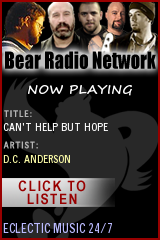Adventures in Fat Queer Literature
A discussion on fat queer literature with Ron J. Suresha and Philip C. Barragan. A shorter version of this interview was featured on the Lambda Literary website.
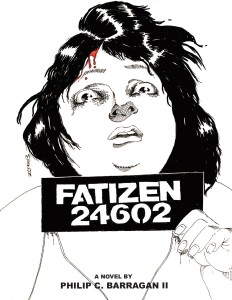 I’m chatting this afternoon with Philip Barragan, author of the new novel, Fatizen 24602, now in print from Branch Hill Publications, which I read with great interest and delight. In turn, Phil agreed to review my new book, The Biggest Lover: Big Boned Men’s Erotica for Chubs and Chasers, and to discuss fat literature and our books.
I’m chatting this afternoon with Philip Barragan, author of the new novel, Fatizen 24602, now in print from Branch Hill Publications, which I read with great interest and delight. In turn, Phil agreed to review my new book, The Biggest Lover: Big Boned Men’s Erotica for Chubs and Chasers, and to discuss fat literature and our books.
Hello, Ron! Glad to be here.
Thanks, Phil. I really enjoyed reading your semi-graphic novel. Of course, it’s actually a novel with illustrations, but the drawings by Mason Arrigo are so compelling, I found them to be an integral part of how I read your book. There’s nothing quite like seeing fatness (or anorexia, even) in the flesh, so to speak — though it is pen and ink.
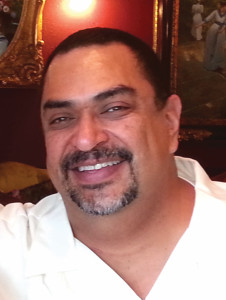 I’m glad to hear that you enjoyed the illustrations and the story. My husband is the artist, and he had a clear vision of how the Fatizen world looked and was excited to do a complete graphic novel of the story — which is still a work in process. But when we went to print, we decided to include 18 full-page illustrations from the graphic novel in the book. I felt it was a bit of a nod to those novels with the occasional artwork throughout the story. And it worked, as you said.
I’m glad to hear that you enjoyed the illustrations and the story. My husband is the artist, and he had a clear vision of how the Fatizen world looked and was excited to do a complete graphic novel of the story — which is still a work in process. But when we went to print, we decided to include 18 full-page illustrations from the graphic novel in the book. I felt it was a bit of a nod to those novels with the occasional artwork throughout the story. And it worked, as you said.
I’m curious to hear about your plans for adapting the work later, but first I’d like to know: what inspired you to write your novel, and how long did it take you to complete?
I had this story idea in my head for years about a world where fat athletes ate themselves to the death in eating matches much like Fight Club by Chuck Palahniuk. And the story built itself around that.
This was a seven year work of love. I started with a short story in undergrad (I returned to school to complete my BA in my late 30s) and turned it into my sole writing project in grad school. I continued working on it daily for three years after getting my MFA.
Why the fascination with fat athletes?
I have been bemused by fat for as long as I can remember. I’ve always seen fat men and women as the embodiment of beauty and strength. And in my youth, I was an athlete, a swimmer/water polo, and I worked hard to stay thin while loving larger companions. I’ve also always been captivated by the transformation of the individual into something larger than ordinary. I wanted to write a story where the fat man or woman was the hero, the one who made things right in the face of adversity. And I wanted to show the power and strength in being a fat person, and the potential for creating change that can be found in each one of us regardless of our size.
What was the most challenging part of writing your first novel?
One of the toughest things to do, I found, was to learn how to write a novel while you are writing a novel. It was a great learning process, and I loved every moment of it, even when it drove me mad in the revision process-which seemed never ending.
The world in 2075 that you created in Fatizen certainly seems dystopian and bizarre at first, but then the grounding element is food. Where there’s fatness, there’s gotta be food, and I found that was a key element also in some of the stories in The Biggest Lover.
Yes, the sharing of meals was key part of Fatizen. In our society, that’s a universally sacred time to gather and commune for holidays and religious observances. It seemed a natural place and time for my characters to connect. And food and drink take on an entirely different aspect in the second and third sections of the story taking the reader on a grim ride into the darker side of human nature.
I noticed that food was a pivotal element in several of the stories in your collection. I found the entire book a fascinating, intriguing and rather exciting read. What motivated you to pull this collection together?
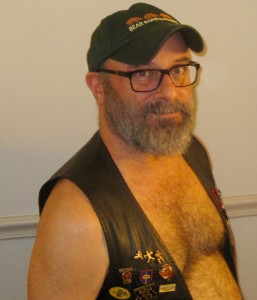 On the suggestion of Lethe Press publisher Steve Berman, I first started thinking about editing a collection of chub-and-chaser erotica at least five years ago. Often an idea for an anthology theme take years to germinate, during which I talk with my publisher, my husbear, and writer friends, do research into the prospective readership and marketing considerations, and contemplate what sorts of stories and which contributors I’d like to include. I ask myself, Is this a topic that is being overlooked, but has the potential to reach many underserved readers? Is it a book that nobody else has done, or could do? If the answers are clearly in the affirmative, then I’ll obtain a contract and issue a call for submissions. After that, it’s a matter of waiting to see what comes in, and deciding what fits your target word count. Anthologies are a fun way to gather a lot of creative ideas and authors and form a small sort of literary community.
On the suggestion of Lethe Press publisher Steve Berman, I first started thinking about editing a collection of chub-and-chaser erotica at least five years ago. Often an idea for an anthology theme take years to germinate, during which I talk with my publisher, my husbear, and writer friends, do research into the prospective readership and marketing considerations, and contemplate what sorts of stories and which contributors I’d like to include. I ask myself, Is this a topic that is being overlooked, but has the potential to reach many underserved readers? Is it a book that nobody else has done, or could do? If the answers are clearly in the affirmative, then I’ll obtain a contract and issue a call for submissions. After that, it’s a matter of waiting to see what comes in, and deciding what fits your target word count. Anthologies are a fun way to gather a lot of creative ideas and authors and form a small sort of literary community.
I felt the introductory statement was excellent: “It is my hope that readers who felt denied of attention and affection will read these stories and realize that love has no weight limit, no threshold, and neither should self-esteem.” Was that your own experience?
Absolutely — though that sentence was written by the publisher, Steve Berman, whose idea it was to do a chuberotica collection. I almost always have some sort of literary activism in mind in putting out an anthology, whether it’s fiction or nonfiction or poetry. At first it amazed me that nobody thought to do a gay men’s chuberotica book before. Or maybe they did and decided there was no market for it. Another significant factor is that most of the best-known fat activists and authors — of fiction, nonfiction, and academic writing, queer or otherwise — are women.
That is so very true. I found that out years ago when I co-founded Girth and Mirth Long Beach in 1996 with a friend of mine. I wanted to create a group for fat gay men that could also engage the community on an activist level, but it became a purely social group — which was what the guys needed, but there was no sense of activism like I had hoped.
True, that is an unfortunate trait that some bear clubs inherited from G&M, the divergence from activism into social and sexual venues. Not to say that socializing and sex aren’t valuable, but there was a distinct lack of political motivation among such organizations.
Many folks, myself included, feel that bear community is a second generation of these sorts of groups, G&M and gay leather/motorcycle clubs. But I want to ask about your biographical sketch in Fatizen, which describes you as an author and activist. I’m intrigued to learn how you see your work — and specifically the writing of your novel — as activism.
My own experience as a lover of men of size and then becoming a fat man (I use the word fat on purpose — many people shy away from it but I find it empowering) as an adult has helped me understand the difficulties fat people go through on a daily basis. While it is true that you don’t have to be a potato to know how to cook one, it wasn’t enough for me to just prefer the company (intimate and social) of fat men and women. I felt compelled to become fat myself for many reasons, the most important of which was a fulfillment of my own personal aesthetic. And in my life, I found that society treats the obese as second-class citizens. Even lower than that, actually, and that’s wrong. But it’s often seen as permissible, and without consequence since so many fat men and women carry so much shame for being fat and often allow those hateful and hurtful anti-fat slurs to be slung about so freely. I choose to be a voice against fat prejudice and through my novel, shed more light on this subject, and to hopefully contribute something positive to the national conversation on obesity and help diminish the demonization of the state of being fat.
Fatizen certainly takes the idea of fat prejudice into the realm of fascism (fat-scism?). Chubs are abused, oppressed, and rounded up into camps. It’s a harsh society that takes many of the dogmatic fat-hating and shaming screeds and turns them into motivational speeches by the antagonist, Mimi Masters, who is a pathetic case study in fatphobia. On the other hand, your heroine, Delilah, does everything she can to speak out against and combat that ignorance and hatefulness.
Thank you for noting those elements of the story. Yes, I wanted to take all of the common fat-hate statements that critics make about the obese and take them to the extreme. If this is the kind of world they want, then let’s see how it could really play out. That’s the joy (or horror) of writing speculative fiction. My antagonist, Mimi, was a terrifically fun anti-fat character to write. She embodies all of the horrible traits I could imagine. And I wrote Delilah as the embodiment of the ultimate fat activist.
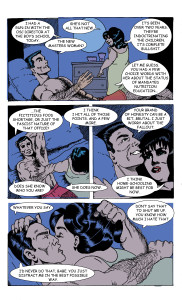 Although the focus of Fatizen is on size-acceptance, there are clear and intended parallels to the WW2 concentration camps in Germany and the internment camps in the U.S. There have been recent calls from the conservative evangelical right to gather all gays on an isolated island or a gated camp somewhere in the U.S. And though we chalk those up as mere “crazy talk,” we can’t ignore those completely. As a fat man, it has been important for me to take a stand against the disparaging actions of others. And sometimes that ugliness comes from our own LGBTQ community. But social groups like Girth and Mirth and the Bear groups across the country have made a difference by creating a safe place for the larger man to find strength in numbers and self-acceptance for who and what we are.
Although the focus of Fatizen is on size-acceptance, there are clear and intended parallels to the WW2 concentration camps in Germany and the internment camps in the U.S. There have been recent calls from the conservative evangelical right to gather all gays on an isolated island or a gated camp somewhere in the U.S. And though we chalk those up as mere “crazy talk,” we can’t ignore those completely. As a fat man, it has been important for me to take a stand against the disparaging actions of others. And sometimes that ugliness comes from our own LGBTQ community. But social groups like Girth and Mirth and the Bear groups across the country have made a difference by creating a safe place for the larger man to find strength in numbers and self-acceptance for who and what we are.
Now, I have to ask: whom would you like to see playing Delilah and Mimi, if your book were to be turned into a movie?
<Laughs> It’s funny you ask that, because I have been asked that several times, even at the book launch last year. And truth be told, we have had a few discussions about it. I think Delilah could be played well by Melissa McCarthy or Rebel Wilson, and Mimi could be Jodi Foster or Gwyneth Paltrow.
Ron, in speaking of extremes, in your book, The Biggest Lover, I was curious, how did you choose the final collection? Was anything off limits? The stories run from tame to extreme, yet they all seem to compliment each other. In their review, Publisher’s Weekly called the book “a delicious panoply with something for every bear.” And that is so true. But was that planned?
Definitely. There were some things I wanted to avoid, such as anything fat-phobic or body shaming, intense descriptions of feeding, unsafe sex, and sex with minors. But M/M romance and erotica is relatively easy to judge: a story has to tug at your heartstrings and make your pants tighten. The latter aspect is usually quite easy to judge if it’s working!
That is so eloquently stated. And true! I wanted to know if, in putting this splendid collection together, did you learn anything new?
Great question, Phil. Though I’m considered a bear community pioneer, I’m new to the gay/bi/queer chub community. Though any superchubs and many chubs would laugh, while editing the book I went through a mini-crisis when none of my size 34 pants would fit me, and I was outraged that many clothing manufacturers don’t make pants in size 35! So you have to go up two pants sizes, which is no big deal, really, but while I was reading these stories, that experience did force me to do some self-contemplation and come to terms with what seemed like a new phase in living with my maturing, aging, thickening body.
That’s terribly honest, and thank you for sharing such an intimate experience. That leads me to my next question: Was there any hesitation in doing this project? Any fears?
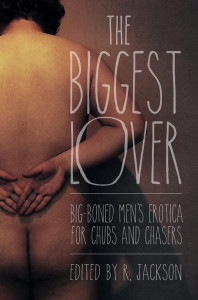 This is my eleventh anthology, so there’s not much I haven’t dealt with before, or any fears other than the dread that not enough great stories will come in, or that there just isn’t a market for a book like this. But I spent a lot of time researching what was available in fat lit, and there was this lacuna I became aware of, and then in shopping the idea around to some of my regular erotica contributors I saw how enthusiastic some of them became. I was at lunch at a writers’ conference with authors William Holden and Dale Chase when I tossed the idea out. Bill said immediately, “I know exactly what I’ll write about!” and by the next morning he had sketched out his piece. That was a very auspicious sign.
This is my eleventh anthology, so there’s not much I haven’t dealt with before, or any fears other than the dread that not enough great stories will come in, or that there just isn’t a market for a book like this. But I spent a lot of time researching what was available in fat lit, and there was this lacuna I became aware of, and then in shopping the idea around to some of my regular erotica contributors I saw how enthusiastic some of them became. I was at lunch at a writers’ conference with authors William Holden and Dale Chase when I tossed the idea out. Bill said immediately, “I know exactly what I’ll write about!” and by the next morning he had sketched out his piece. That was a very auspicious sign.
It must have been an exciting process to pull together. It was fascinating to see how differently these authors explored fat sexuality. I think that’s what I enjoyed more than anything. Writing sex scenes is a tricky thing. I took classes on it in grad school, and it’s not easy. The entire collection is very well curated, and I am thrilled that you have put it out there for our community.
Thanks so much for your kind words. I also heartily recommend your excellent novel and wish you the best with it. You also have a cool YouTube trailer for the book: https://youtu.be/_3aNbjboFdA. I want to ask in closing about your plans for doing a fully illustrated graphic novel and if you’ve entertained any ideas about adapting the book into a movie.
Thank you for asking about the next steps for this project, and for mentioning the book trailer. Those were great fun to produce, and for those trailers, we used the art from the graphic novel that will be released by chapters starting this year 2016. We are exploring publishing options right now, but we are work on it daily. And as for the movie, I have yet to write the screenplay, but there has been expressed interest by a few production entities, so things are definitely happening in both of those areas. Any new news will be made available on the official website: www.fatizen.com.
I wish you the best with all your efforts for Fatizen 24602. Thanks again for having this conversation with me, Phil.
Ron, it has been a pleasure to chat with you, and I appreciate it! Good luck with your book, The Biggest Lover!

